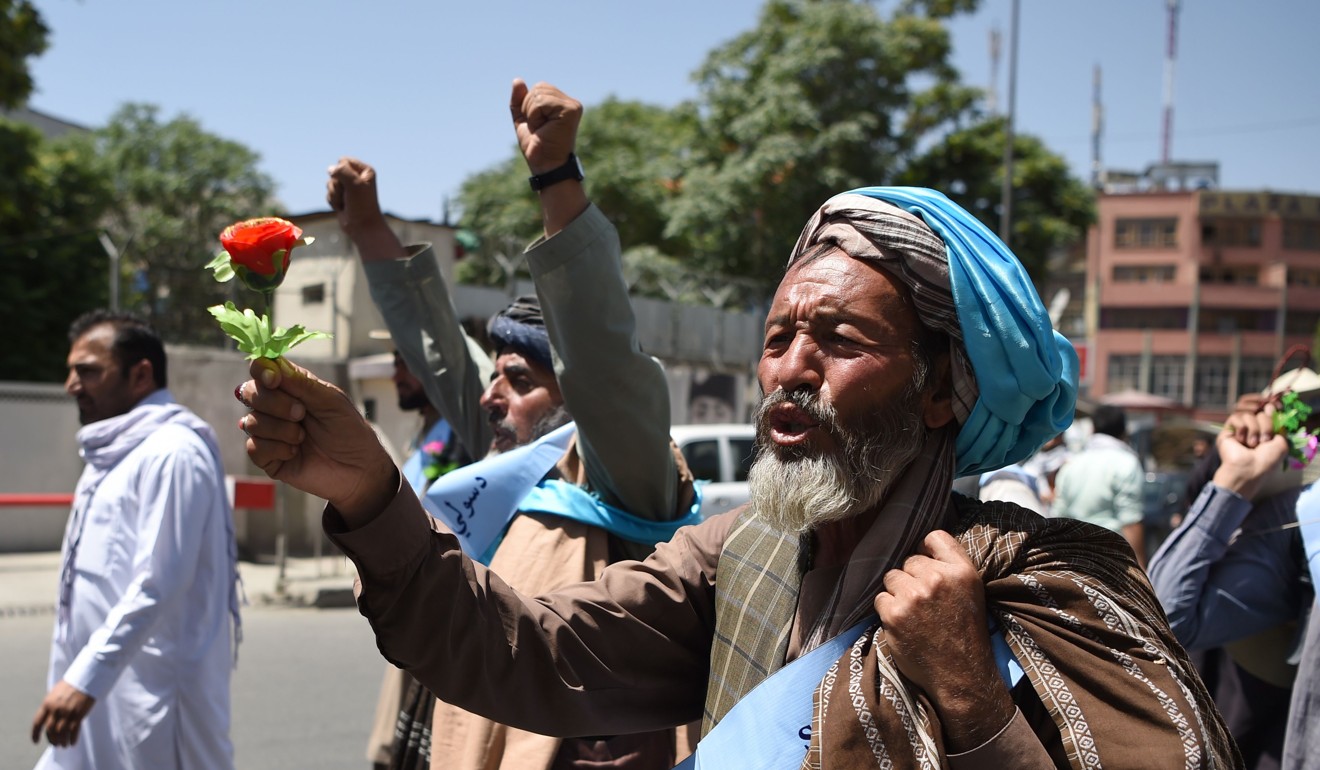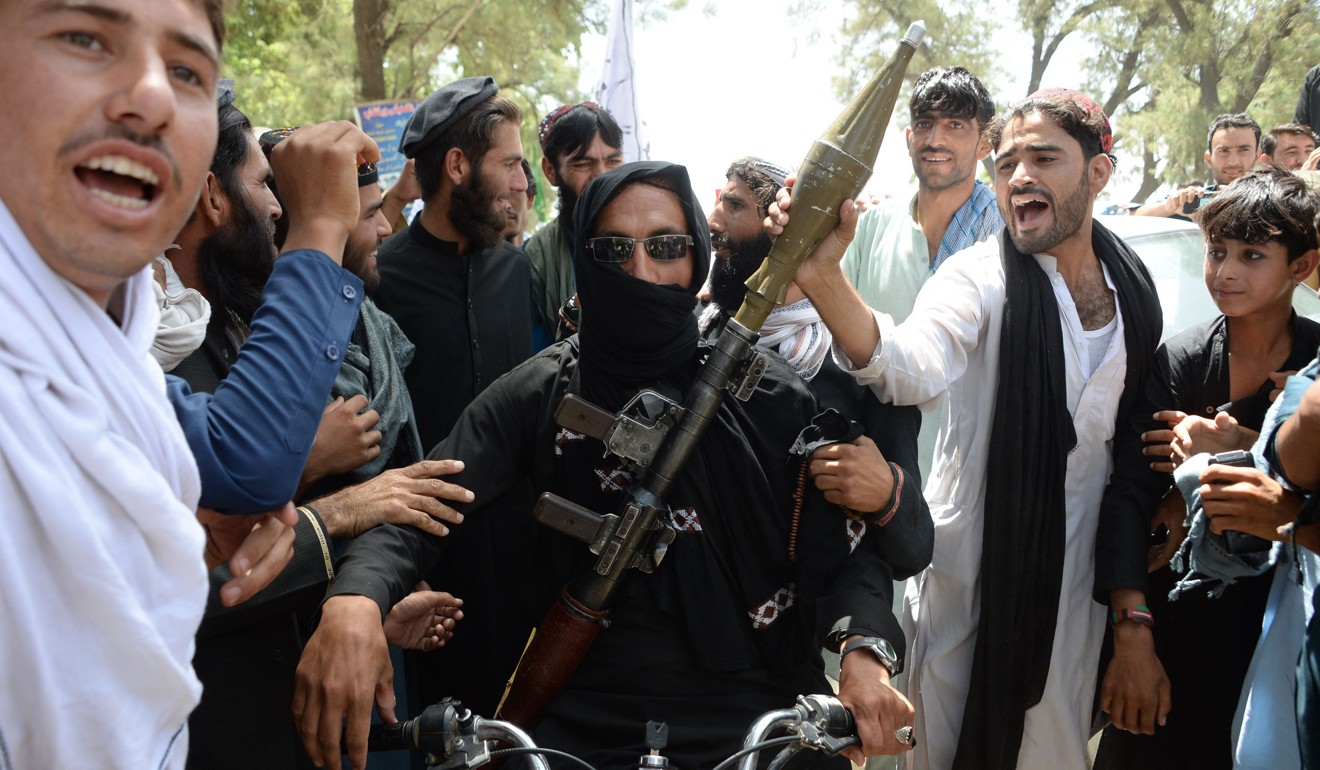
US Secretary of State Mike Pompeo makes surprise visit to Kabul
Pompeo’s visit to Afghanistan comes amid renewed optimism for peace in the war-weary country after last month’s three-day ceasefire
US Secretary of State Mike Pompeo said on Monday that there was “now hope” for peace talks between the Afghan government and the Taliban, during an unannounced visit to Kabul.
Pompeo’s first visit to Afghanistan since he was sworn in as America’s top diplomat in April came amid renewed optimism for peace in the war-weary country after last month’s unprecedented ceasefire by the Taliban and the government.
“An element of the progress is the capacity that we now have to believe that there is now hope,” Pompeo said at a joint press conference with Afghan President Ashraf Ghani.

“Many of the Taliban now see that they can’t win on the ground militarily. That’s very deeply connected to President Trump’s strategy,” he said, referring to Trump’s much-vaunted South Asia policy announced in August.
But he added: “Make no mistake, there’s still a great deal of work to do.”
The Afghan Malala: shot by the Taliban, college student Breshna Musazai defies the odds to graduate with honours
Pompeo’s visit to the Afghan capital follows a ceasefire during Eid, when the Islamic holiday was marked by spontaneous street celebrations involving Afghan security forces and Taliban militants.
Fighters on both sides expressed a deep fatigue with the grinding conflict, raising hopes that an end to hostilities was possible after 17 years of war that began with the US-led invasion in 2001 that ousted the Taliban from power.

But the insurgents refused the government’s request to extend their three-day ceasefire, launching attacks that have seen scores killed or injured.
US-backed Ghani, who is under international pressure to ensure credible parliamentary elections are held in October ahead of next year’s presidential vote, has been leading the push for peace talks.
Ghani thanked Pompeo for US support, hailing Trump’s strategy as a “game changer” in the conflict.
The Taliban have so far ignored Ghani’s offer of negotiations. Instead, they have insisted on direct talks with the United States, which Washington has repeatedly refused.
One of the Taliban’s key demands for engaging in talks has been the complete withdrawal of foreign troops from Afghanistan, but observers say they now appear amenable to a timetable for their pull-out.
US service member killed in ‘insider’ attack in Afghanistan, while two more are wounded
Currently, there are about 14,000 US troops in Afghanistan, providing the main component of the Nato mission there to support and train local forces.
Pompeo said while the United States would have an “important” role in peace talks, the process must be Afghan-led.
They would “include discussion of the role of international actors and forces”, he added.
A Western official told reporters in Kabul recently that there was increasing debate within the Taliban leadership over how to respond to growing pressure to take part in negotiations.

But the renewed violence and the Taliban’s recent vow to continue their bloody fight against the government and their foreign backers, has dampened hopes that the truce would provide a clear path to peace talks.
Pompeo’s visit to Kabul comes almost a year since Trump announced his new strategy to tackle Afghanistan by taking a broader regional approach, deploying diplomatic, military and social pressure to convince the Taliban that it cannot win.
US envoy Alice Wells told reporters in Kabul on June 30 that the Taliban’s inertia on negotiations was “unacceptable”.
Islamabad is also under growing US pressure to crack down on extremist groups operating in the country.
Taliban and Afghan forces agree unprecedented ceasefire over Eid
Pakistan has long been accused of supporting the Afghan Taliban and providing safe haven to its leaders, charges Islamabad denies.
Pakistan, in return, has accused Afghanistan of sheltering the Pakistani Taliban.
International Islamic scholars meeting in Saudi Arabia this week are expected to add their weight to calls to end the Afghan conflict.
That comes on the heels of a fatwa issued by Afghanistan’s top clerics branding suicide attacks “haram”, or forbidden.

.png?itok=arIb17P0)